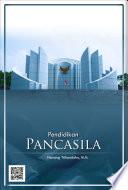
Ilmu Perundang-Undangan
Buku ini merupakan upaya Penulis untuk menghadirkan pemahaman yang komprehensif mengenai sistem perundang-undangan di Indonesia. Dalam dunia hukum, perundang-undangan memiliki peran yang sangat vital dalam mengatur kehidupan bermasyarakat, berbangsa, dan bernegara. Seiring dengan perkembangan zaman dan tuntutan perubahan yang semakin dinamis, pengetahuan mengenai ilmu perundang-undangan menjadi semakin penting. Buku ini hadir sebagai sarana bagi para pembaca, terutama mahasiswa, akademisi, praktisi hukum, dan masyarakat umum yang tertarik untuk memahami lebih dalam mengenai Ilmu Perundang-Undangan di Indonesia. Hadir spesial dalam 16 Bab yaitu Ilmu Perundang-Undangan Sebagai Disiplin Ilmu Hukum; Norma Hukum dalam Peraturan Perundang-Undangan; Sejarah Perundang-Undangan di Indonesia; Sumber Hukum Formil dan Materiil dalam Hukum Tata Negara; Asas-Asas Pembentukan Peraturan Perundang-Undangan; Jenis, Fungsi, dan Materi Muatan Peraturan Perundang-Undangan; Tahapan Pembentukan Peraturan Perundang-Undangan di Tingkat Pusat; Tahapan Pembentukan Peraturan Daerah Provinsi dan Peraturan Daerah Kabupaten/Kota; Evaluasi Pembentukan Peraturan Perundang-Undangan di Tingkat Pusat dan Daerah; Meaningful Participation dalam Pembentukan Peraturan Perundang-Undangan; Wewenang dan Fungsi Lembaga Eksekutif dan Legislatif dalam Pembentukan Peraturan Perundang-Undangan; Omnibus: Jenis Peraturan Perundang-Undangan atau Metode Pembentukan Peraturan Perundang-Undangan?; Harmonisasi dan Sinkronisasi Peraturan Perundang-Undangan di Indonesia, Perubahan dan Pembaharuan Peraturan Perundang-Undangan; Penggunaan Metode Ria dalam Pembentukan Peraturan Perundang-Undangan; dan Bahasa Indonesia Hukum dalam Pembentukan Peraturan Perundang-Undangan.
- ISBN 13 : 6238856939
- ISBN 10 : 9786238856930
- Judul : Ilmu Perundang-Undangan
- Pengarang : Fakhry Amin, Riana Susmayanti, Fuqoha, Femmy Silaswaty Faried, Suwandoko, Muhammad Aziz Zaelani, Asri Agustiwi, Herlina, Deni Yusup Permana, Dika Yudanto, Mohamad Hidayat Muhtar, Adwi Mulyana Hadi, Ibnu Sam Widodo, Moh. Rizaldi, Riana Susmayanti, Fuqoha, Femmy Silaswaty Faried, Suwandoko, Muhammad Aziz Zaelani, Asri Agustiwi, Herlina, Deni Yusup Permana, Dika Yudanto, Mohamad Hidayat Muhtar, Adwi Mulyana Hadi, Ibnu Sam Widodo, Moh. Rizaldi,
- Kategori : Political Science
- Penerbit : Sada Kurnia Pustaka
- Bahasa : id
- Tahun : 2023
- Halaman : 250
- Google Book : https://play.google.com/store/books/details?id=xR_OEAAAQBAJ&source=gbs_api
-
Ketersediaan :
... Science of Legislation. Ilmu Perundang-Undangan merupakan ilmu yang bersifat interdisipliner dan mengkaji tentang pembentukan peraturan negara. Meskipun dalam Undang-Undang Dasar 1945, tidak banyak mengemukakan hal-hal mengenai ...









